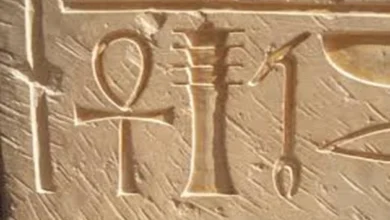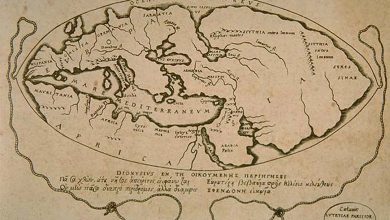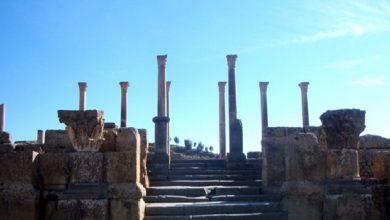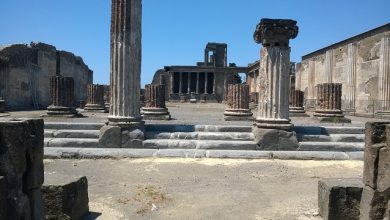What did Plato encrypt in his texts about Atlantis?

It is generally accepted that Atlantis is a fictional state, a kind of myth presented to mankind by the ancient Greek philosopher Plato. Until now, no one knows exactly how to interpret this story.
In any case, the story of the mysterious and powerful ancient island civilization fascinated the imagination of more than one subsequent generation after Plato. An advanced, highly developed society, an idyllic paradise where the most intelligent and fair sentient beings lived. How to understand what exactly Plato had in mind and what secret meaning he encrypted in his texts?
What Plato wrote
Around 360 BC, the famous ancient Greek philosopher presented an incredible story to the public. In his dialogues about Timaeus and Critias, there was a story about a powerful ancient civilization, the analogues of which the world did not know. The most highly developed and advanced society of all time and a beautiful paradise island, where a complete idyll reigned in all spheres of life. The legendary state was called Atlantis. The most skilled seafarers lived there, who even crossed the Atlantic Ocean. They conquered new lands there and engaged in scientific research.
Many today are preoccupied with the search for this lost ancient state. There are many theories as to where it might be. The most popular versions are the coast of Cyprus in the eastern Mediterranean, the Azores region in the middle of the Atlantic, and even the Bermuda Triangle.
There are more exotic theories, such as Antarctica and Indonesia. Scholars have conducted thorough research of the texts and agree that it is most likely either Santorini or Crete, possibly Malta or Spain.
Expert opinion leans towards the many well-known archaeological sites throughout the Mediterranean. In general, there are countless versions of the location of the mythical island, and every year their number is only growing.
Modern science is divided into those who believe that either the story of Atlantis is pure fiction, or it is a metaphorical story about the real problems of any civilized society. It’s just that Plato used an invented place and a mixture of real events with fictional ones. Historians point to a huge amount of speculation around this issue, making it difficult to find the truth.
Scientists have found Atlantis
So, is it likely that this whole story about Atlantis was just a figment of the imagination of the great Plato? Of course, this is certainly possible. But. How then to explain the existing material evidence of the reality of this “myth”? Recently, archaeologists have found a place that fully corresponds to the descriptions of the philosopher. This is a now submerged island in the Mediterranean Sea near the island of Santorini.
According to Plato, the history of Atlantis took place 11,000 years ago. At that time, many of the Cyclades were connected by a flat area called today the Cyclades Plateau. Today it is a plateau under water, it formed the body of a large island, while the modern islands of the Cyclades formed a series of mountains, which, if you compare their position with the history of the ancient Greek, are exactly where they should be! Plato wrote that the north of Atlantis is the mountains that reach the coast. Behind them opened a vast elongated valley. In the center, there is also a large valley surrounded by a mountain range. All these descriptions correspond to the place found by scientists nine kilometers from the island of Santorini.
Plato wrote that Atlantis sank about 8000 BC. This, according to UNESCO studies in 2005, is the time of the rise of the Mediterranean Sea and shortly before the flooding of the Black Sea. That is, everything corresponds to Plato. Is Atlantis still real? Was there really such a great prehistoric civilization known to the ancient Greeks?
Inaccurate translation
To successfully solve the Platonic puzzle, one must take into account the fact that the inaccuracy of the translation distorted the meaning of the text. To do this, the researchers took the original text in Greek and began to study it. After all, this language has a completely different syntactic structure from English. Even one comma can completely change the meaning of a whole sentence. After that, it was proved that, unlike all past “discoveries”, which were more based on assumptions, the latter completely coincided with the characteristics that were given to Atlantis by Plato.
Anthropologists are wrong
On the network, many rushed to discuss the plausibility of the discovery. Many have stated that the very belief in the existence of such an ancient civilization is completely contrary to common sense. But many scientists say that modern people simply find it difficult to accept the fact that their ancestors were more advanced than they used to think.
“Along with the ancient city of Jericho in Palestine, in respect of which it has long been established that some of its buildings date back to the 10th millennium BC, the cities of Western India in the Gulf of Cambay (8000 BC) convincingly prove that prehistoric people possessed an intellect in no way inferior, and in many respects even superior to the intellect of modern man. Anthropologists are wrong.” – Christos A. Jonis (archaeologist and explorer, author of Atlantis: The Discovery of All Life)
Despite all the evidence, there are skeptics who believe that this could not be. They argue that such a development of civilization in those days is impossible. They point to Plato’s literary exaggerations and use mostly pre-existing versions that contradict one another. Only these researchers overlook the fact that Plato did not write a dry historical chronicle but a story. Every smallest detail in it does not have to match at all.
A fantasy that became reality
Was there a powerful Atlantean civilization? Or is it still a myth? Did Plato come up with all this to demonstrate his ideas about government, to promote his philosophy? Or maybe it was a story built on the basis of a civilization that once existed, which the ancient Greeks knew about? Perhaps, for the beauty of the style and greater connection with reality, the philosopher filled the story with more modern details? The best answer to all these questions would be another literary work: Homer’s Iliad. Troy, which was described there, was considered a myth for many centuries. It’s just that Homer filled a true story that took place more than six centuries ago with some elements of his time.
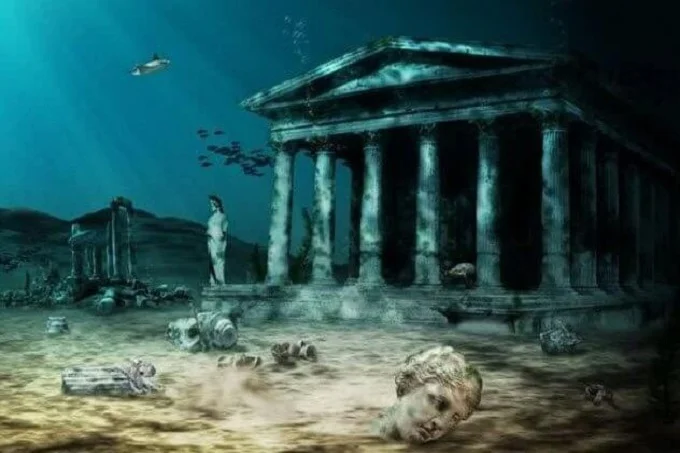
History knows another similar example: the Battle of Thermopylae. The story of 300 Spartans, led by King Leonidas to the last drop of blood, bravely fought against countless hordes of bloodthirsty Persians, is generally true. Various versions in ancient texts differ only in the size of the enemy army. Herodotus wrote that there were 2.6 million Persians. The poet Simonides claimed that there were 4 million of them altogether. The Greek physician and historian Ctesias indicated 800,000 people. That aside, everything else was absolutely true. Modern historians believe that the number of Persian troops could not exceed 300,000 people. Of course, the greater the number of enemy forces, the more impressive the story of the feat of the Spartans sounds. But neither this feat, nor the Battle of Thermopylae, is an exaggeration.
The most interesting thing is that Troy and Thermopylae are far from the only cases when something was considered a myth, but it turned out to be a reality. So in this light, the story of Atlantis is also quite likely.
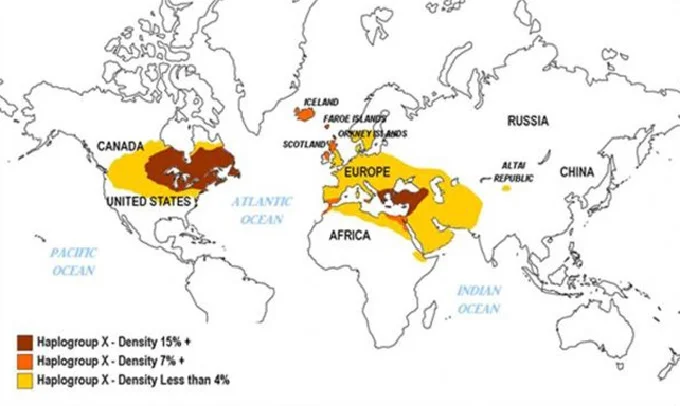
So what’s the bottom line?
The main question remains: did Plato write a fictional, but very instructive story for his contemporaries, or was it all so? In favor of a positive answer to this question is the fact that an island was found that fully corresponds to the description of the legendary Atlantis. Perfect match. Research confirms that many signs of an ancient highly developed civilization are present in the area. The first step towards unraveling the mystery has been taken.
The second question arises: is it possible then the existence of a certain “mighty army” that the philosopher describes? These people inhabited the area of the prehistoric island of the Cyclades plateau. Historians give a positive answer to this question. Does this, in turn, mean that the host described is the remnants of an even more ancient civilization that was able to recover on the nearby islands after the Great Flood at the end of the last ice age? And finally, was this lost civilization able to swim across the ocean and reach America, as Plato claimed?
The researchers came to the conclusion that the huge island on the other side of the Atlantic, about which the philosopher writes, is America. He describes the continent as being “opposite the Pillars of Hercules” (Strait of Gibraltar), “washed by an ocean,” and “larger than Libya and Asia put together.” Another coincidence? Only science confirms this by the fact that in a completely incomprehensible way more than 10,000 years ago, the Middle Eastern gene appeared here. It is equally inexplicable that the same haplogroup X (human mitochondrial DNA haplogroup or Middle Eastern gene) is present in Scotland, Orkney, the Faroe Islands, and Iceland. According to Plato, along the entire route of the “Atlanteans”.
Its highest concentration in North America is in the Great Lakes region. The theory that Europeans entered the Americas on a partial ice sheet across the Atlantic does not explain where the more than a dozen other European haplogroups went. Why did only this one safely reach the continent? If you believe Plato, then America was discovered by a certain race of prehistoric Mediterranean sailors. This hypothesis is supported by the fact that during travels to the New World from Asia, without exception, all four Asian haplogroups reached it.
The death of Atlantis
Contrary to popular belief, there is a completely unambiguous answer to the question of how Atlantis actually died. Based on Plato’s words that Atlantis “was swallowed up by the sea and disappeared”, many people think that this was sudden. It’s a delusion. The philosopher wrote that the death of Atlantis came after several “ominous earthquakes and floods.” That is, the philosopher mentions these cataclysms in the plural. Consequently, the destruction of the island was gradual. In addition, the expression of Plato “one hard day and night” among the Greeks does not mean at all that the island went under water during the day. It’s just a poetic figure of speech.
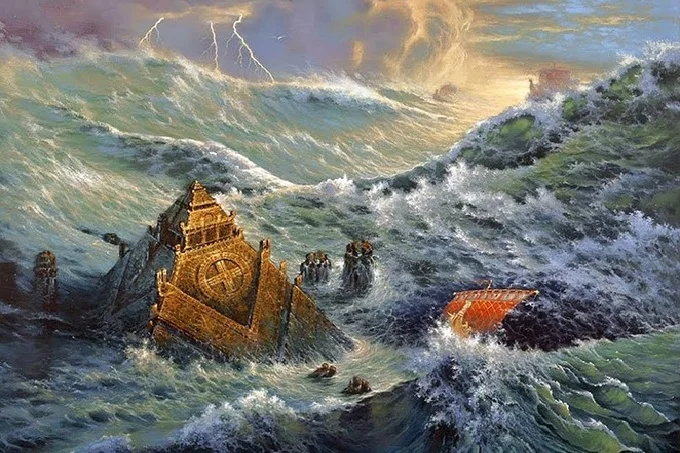
In addition, the philosopher very accurately indicated the area where the mountain peaks of Atlantis were above the water, forming islands. This corresponds to the modern Cyclades. The philosopher compares these tiny pieces of land with the “bones of an emaciated body” of that great “country” that was once there.
Ancient Greece keeps so many different secrets! Sometimes its riddles can be solved by modern scientists, sometimes not.

